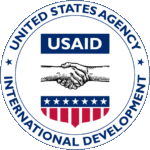 In the war against Ebola, Cornell University – along with partners International Personnel Protection Inc. (IPP) and protective apparel manufacturer Kappler Inc. – will rethink, reimagine and re-engineer protective suits for health care workers on the front lines battling the life-threatening contagion.
In the war against Ebola, Cornell University – along with partners International Personnel Protection Inc. (IPP) and protective apparel manufacturer Kappler Inc. – will rethink, reimagine and re-engineer protective suits for health care workers on the front lines battling the life-threatening contagion.
Through a U.S. Agency for International Development (USAID) grant, the garments will be improved to be more comfortable and breathable, with leak-free barrier protection and better hood design.
In addition, the protective suits will be engineered for easier removal, or doffing, a critical step in preventing accidental exposure to bioagents.
Current protective garments offer no breathability, which leads to heat stress, profuse sweating and discomfort. “A biological, protective clothing system is the only shield available for those who serve to fight against Ebola,” said Huiju Park, assistant professor in fiber science and apparel design, a grant team member. “The battle is being fought in the most challenging environment in Africa in extremely high temperatures and humid conditions.”
Specifically, Park and David Mengyun Shi, a graduate student in the field of functional apparel design, will develop prototypes for a lightweight, effective cooling technology for quick heat release to prevent thermal discomfort and heat stroke.
The researchers expect to have a successful prototype – to be made at an affordable price – within a year.
The USAID’s Fighting Ebola challenge launched last October seeking new, practical solutions in collaboration with the White House Office of Science and Technology, the Centers for Disease Control and Prevention, and the Department of Defense.
In just two months, the challenge received more than 1,500 ideas from around the world. “We are embracing a new model of development – one that harnesses the power of science and technology to bend the curve of development,” said Rajiv Shah, USAID administrator.



